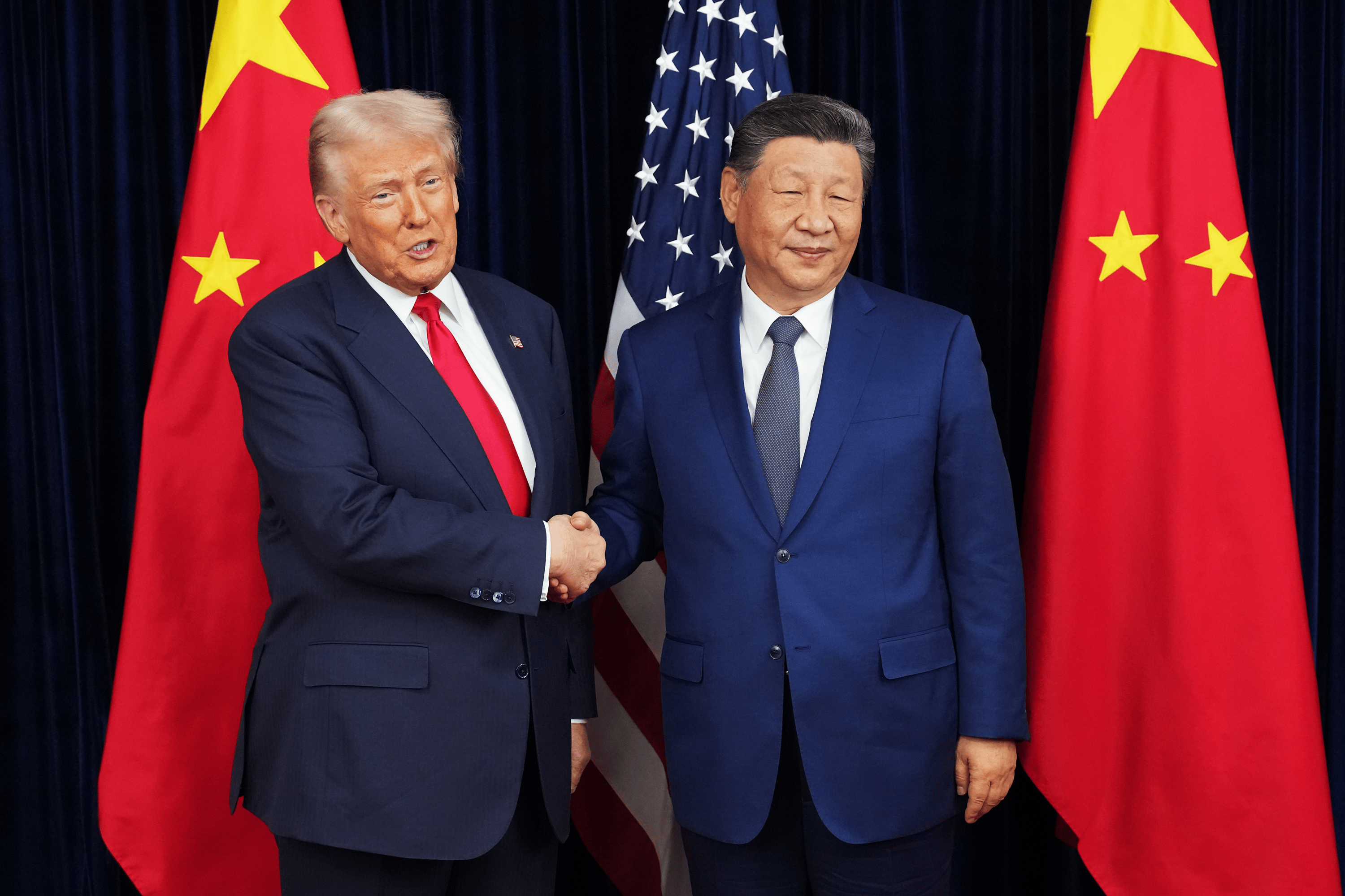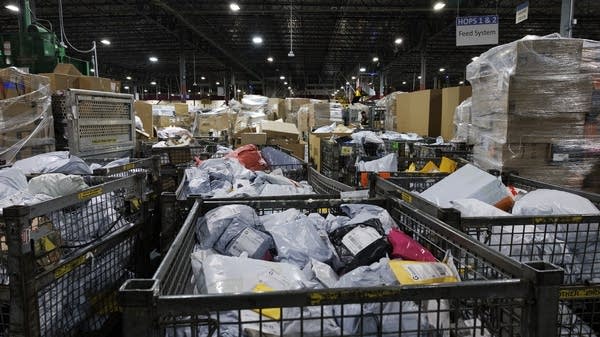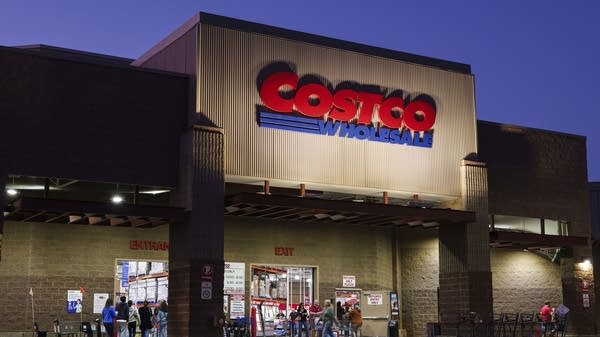1,600 feet underground in a Wyoming trona mine
The mineral, which goes into baking soda and glass, is Wyoming’s biggest export. The industry is bracing for impacts from reciprocal tariffs.

A giant cage elevator lowered miner Kale Pitt and his hard hat from the surface of the sagebrush desert of southwest Wyoming into the underground world of trona mining.
“Tiny light at the very bottom is where we're headed, a little over 1600 feet (deep),” said Pitt.
Down there are remnants of Wyoming’s prehistoric subtropical past. This corner of the state was once crawling with alligators and turtles 50 million years ago. There was a giant lake, which helped form layers of trona — some of the world’s largest deposits.
It’s a white-ish, flaky, translucent mineral. Globally, many rely on Wyoming for it, because it goes into everyday things like, windows, beer bottles, laundry detergent and kitty litter. But President Trump’s tariffs could disrupt that global market.
To help understand the dynamics at play, Pitt gave a tour of where the supply chain starts: the downstairs of the operation at Tata Chemicals. The company, based in India, is one of four main companies mining trona in southwest Wyoming.
The elevator clunked as it descended into the depths of the Earth. The air got warmer, and dust filled one’s eyes, nose and mouth.
Four minutes later, the cage opened up to a dark abyss of mine tunnels.
“You guys ready?” Pitt asked. His headlamp caught the shimmers of trona crystal on the walls, ceiling and floor.
“Kind of has a hollow-type sound to it,” he said, tapping a few hand-sized pieces together.
The mine operates 24/7. In the rock wall there are carved out lunch rooms and a diesel and tire shop. Also, huge equipment — all of which came down on the elevator shaft.
The mine is a labyrinth of 3,000 miles of rough two-track. So to get anywhere, you gotta drive.
“It takes a few months to learn where you're at in the mine to navigate,” Pitt said, chuckling at the suggestion of Google Maps. “No, we don't have any GPS. We don't have phone service.”
They communicate via radios, which are also used to let people know about big things like family emergencies, or “Super Bowl scores and things like that.”
A little farther in the tunnel, Pitt pulled up to a crew of burly, sweaty men.
He yelled over the loud mining sounds, “You guys all good?”
“You’re looking good in there,” the miners joked back. “You look as crammed up as we do. Have fun, we gotta go.”
The workers were coming off a 12-hour shift mining those sparkling chunks of rock, which are a big deal for Wyoming. Above ground, they’re processed into a fine white powder called soda ash, which is an ingredient in so many things we all use, like baking soda, windows and even the batteries in your phone.
“Ninety percent of the world's economically mineable trona is here — you’re on top of today,” said Jon Conrad, TaTa Chemicals’ director of governmental affairs.
Conrad spoke in his office, back 1,600 feet above the trona mine.
He pointed out there is a way to make soda ash without trona, using chemicals. It’s called synthetic soda ash. The main producer? China.
“I mean that's our threat,” Conrad said, frankly. “Their ability to make soda ash at a cheaper price, or just the same.”
The majority of the world’s soda ash comes from China’s synthetic pile. So Conrad said Wyoming is trying to hold its place in the market.
But U.S trade policy could disrupt that. Most of Wyoming’s soda ash is exported, and Conrad is worried about reciprocal tariffs imposed by countries that buy it.
“If some of our overseas markets don't want to compete or pay the tariffs, they'll probably turn to China, where there is no tariffs,” he said.
That could threaten Wyoming’s $1.5 billion industry and thousands of jobs. Conrad said they have capacity to mine even more trona, which means more jobs and money flowing. But, they’re waiting for global politics to quiet down.
Meanwhile, it is everything but quiet 1,600 feet underground with miner Kale Pitt.
He wanted to show the gut of the operations. A half dozen workers were cutting 450 feet into the rock wall.
“Warning light is starting, they’re gonna start the panel up,” Pitt shouted over the roaring mining sounds.
He stood in a sludge that occasionally bubbled.
“Methane gas coming out of the floor,” Pitt said. “It'll start bubbling up out of water.”
Too much methane shuts down the machines. A snakey tube shoots in fresh air and the mining equipment fires back up.
The crew guided a giant machine that chewed through the wall, and spit out chunks of trona that slid onto a conveyor belt. That belt will bring the trona 1,600 feet above ground to be processed and eventually used all over the world.













